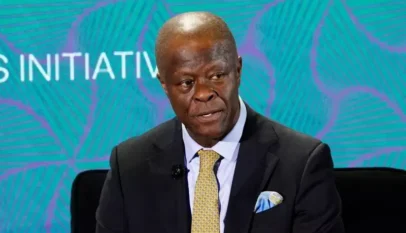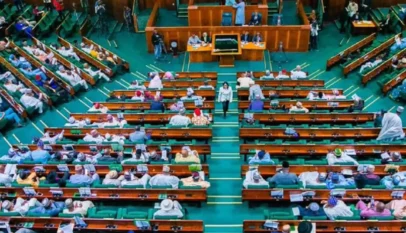By Agency Report
Mr. Wale Edun, the Minister of Finance and Coordinating Minister of the Economy, stated that Nigeria’s economy has experienced a period of relative stability over the last 18 to 20 months.
Speaking at a Zoom dialogue session in Abuja on Thursday, Edun highlighted that the economy narrowly averted collapse after relying on illegally borrowed central bank funds, which had exceeded regulatory limits.
Edun, who spoke during a Zoom dialogue meeting in Abuja on Thursday, said the economy narrowly avoided collapse, having survived on illegally borrowed central bank funds far beyond regulatory limits.
“Where we are now is that, in the last quarter of 2024, the economy grew at roughly 3.84 percent, which is close to the annual target of 3.4 percent. Looking at the metrics, inflation has started to slow down. It dropped by 1.3 percentage points between January and February, and food inflation is also declining.
“Additionally, the cost of petroleum and energy is down due to sectoral dynamics,” he said.
Edun said the economy was stabilizing; the budget deficit was reducing, and debt servicing as a percentage of revenue had dropped.
“All economic indicators are moving in the right direction, and most importantly, the cost of living is gradually improving.
“With this progress, the government is now focusing on further stabilization and creating an environment that encourages private sector investment.
“We are also leveraging technology to enhance revenue generation from government-owned enterprises,” Edun explained.
The minister stated that the tax reform bill was set to increase the top-end personal income tax rate from 18.6 percent to 25 percent while also tightening government expenditure.
He said that economic growth would be driven by agriculture, housing, authority, and infrastructure.
Edun said the government was transitioning from concessional and bilateral financing to cheaper sources of funding, including a domestic bond issue.
He also reiterated the government’s commitment to resolving pensioners’ legacy debt, revealing that over N700 billion in bonds had been issued for pension payments.
Acknowledging that Nigeria remains an oil-dependent economy, Edun stressed that the government was making efforts to create a safe and investor-friendly environment for oil operations.
“Maximise revenue from fossil fuels while it remains viable, encourage public-private partnerships, joint ventures, and privatization to boost investment.
“Now is the time for equity, revenue generation, and private sector participation, both domestically and internationally,” he said.

































